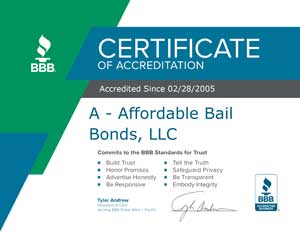What Are Bailable and Non-bailable Offenses?
When an individual is charged with a crime and arrested, he or she may be allowed to post bail to be released. In some cases, bail is not available depending on the circumstances of the charge. These are the key differences between bailable and non-bailable offenses.
Understanding Bailable Offenses
Simply put, a bailable offense is one in which the accused individual is eligible for bail. This means that the person is kept in court custody until he or she is able to provide the stated bail amount. If the person does not show up for his or her court date after posting bail, the bail amount is forfeited. Generally, most misdemeanors are bailable offenses, such as forgery and minor drug offenses.
Identifying Non-bailable Offenses
A non-bailable offense is usually a more serious type of crime. Typically, non-bailable offenses are those that can be punished with life in prison and/or the death penalty if the person is convicted. Crimes associated with terrorism are also non-bailable.
A crime may also be considered non-bailable if the person has had at least two other non-bailable offenses or was previously convicted of a crime and sentenced to at least seven years in prison. If he or she commits a crime while already on bail, the subsequent offense is not eligible for bail. When a person is arrested for offenses involving possession of or intent to distribute illegal substances and will not participate in drug rehabilitation, he or she will not receive bail.
A-Affordable Bail Bonds provides bail bonds across Washington State, and we have a reputation for exceptional professionalism and customer service. Find the appropriate jail and then call an experienced agent at 1-888-695-8950. You can also request a bail bond through our site.




